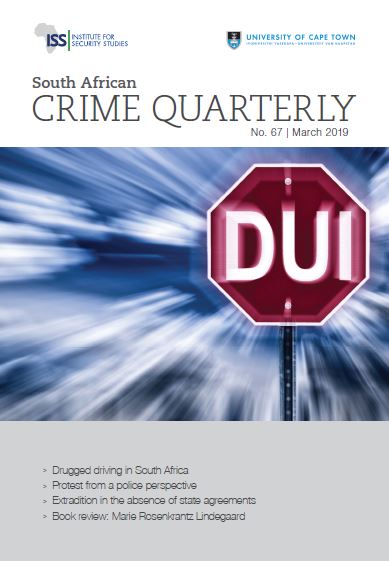Extradition in the absence of state agreements: Provisions in international treaties on extradition
DOI:
https://doi.org/10.17159/2413-3108/2019/i67a4927Abstract
By virtue of state sovereignty, states exercise authority over all persons and things within their territories. This includes individuals suspected of committing or charged with crimes in foreign states. International law generally imposes no obligation to surrender individuals suspected of or charged with committing crimes in foreign states. Fugitives may only be returned when an agreement exists between the states concerned. As such, states are increasingly ratifying international treaties mandating cooperation to ensure that individuals responsible for certain categories of crimes are brought to justice. It is worth noting that some of these states lack extradition treaties with each other. For example, South Africa and the United Arab Emirates (UAE) are party to the United Nations Convention Against Corruption (UNCAC) which mandates that they cooperate with each other in ensuring that crimes related to corruption are prosecuted. However, there is no extradition treaty between South Africa and the UAE. In these circumstances, a question arises as to whether they can they rely on the UNCAC to extradite individuals for corruption-related crimes. If they can, what is the nature of the international obligation entrenched under the UNCAC? Overall, what is the standing of international treaty clauses on extradition for states without extradition treaties?
Downloads
Downloads
Published
Issue
Section
License
Copyright (c) 2019 Author and Institute for Security Studies/UCT

This work is licensed under a Creative Commons Attribution 4.0 International License.
SACQ is licenced under a creative commons licence (CC BY) that allows others to distribute, remix, tweak, and build upon your work, even commercially, as long a they give appropriate credit, provide a link to the license, and indicate if changes were made. They may do so in any reasonable manner, but not in any way that suggests the licensor endorses you or your use.
Copyright for articles published is vested equally between the author/s, the Institute for Security Studies and the Centre of Criminology (UCT).




.png)